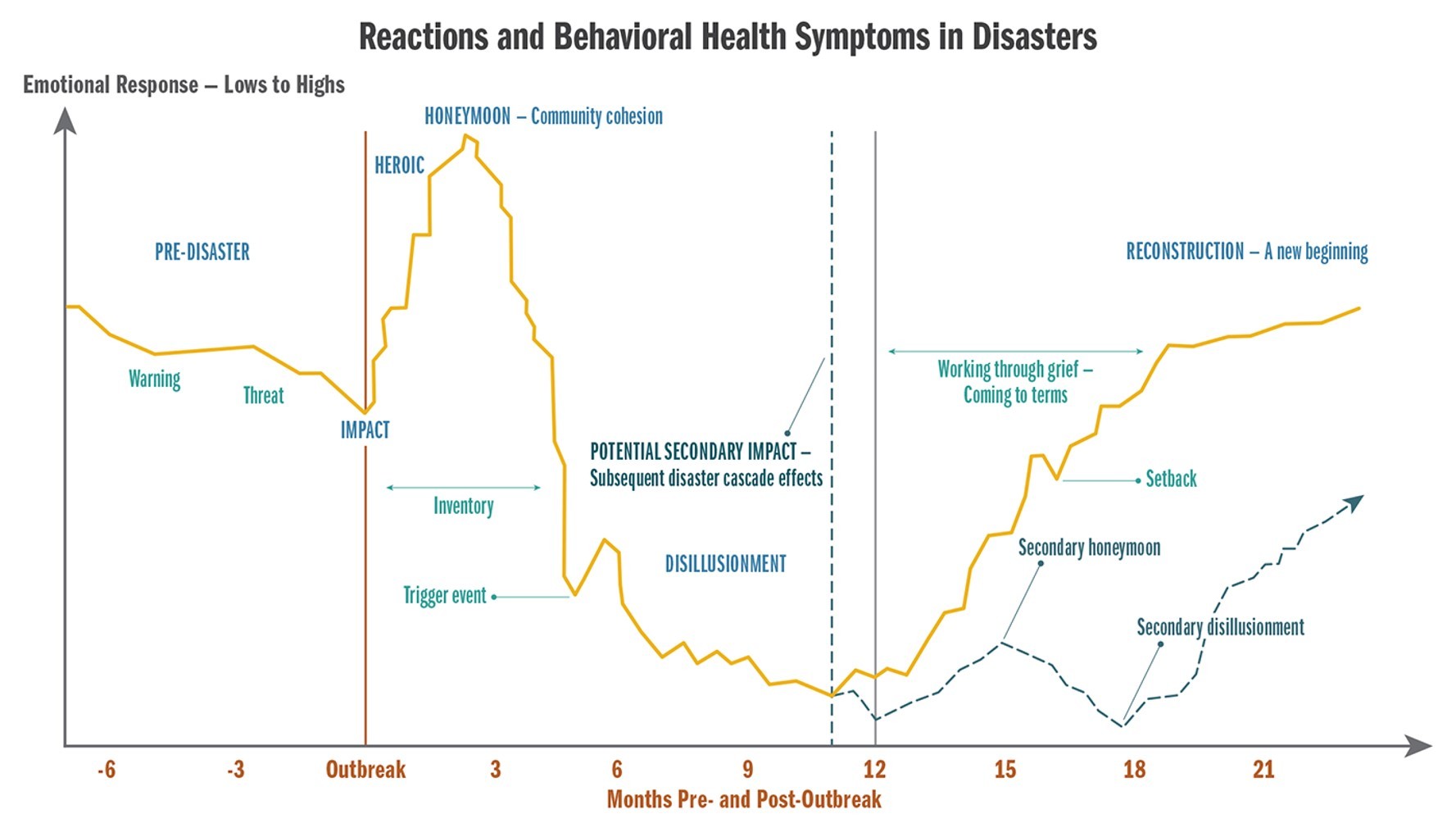
Reactions and Behavioral Health Symptoms in Disasters
Let’s face it. The past few weeks have been especially taxing on our collective emotional and mental health. With the culmination of a pandemic, world events and inclement winter weather, it’s more important than ever to take time to consider your mental health and that of your family and friends, too.
A few weeks ago, we hosted a Facebook Live with Dan Barth, the Communications Director with Inland Northwest Behavioral Health. Dan discussed the importance of normalizing the anxiety we may all be feeling right now while sharing available resources for families, teens, and children to directly address mental health.
Though no one in our lifetime has experienced a pandemic at the scale we are currently seeing, clinical psychologists have studied natural disasters and the effects these influences have on our mental health for over one hundred years. With this helpful data, key trends have emerged to examine how humans manage stress in the face of disaster.

During a pandemic, Dan shared that we are essentially living through disaster trauma every day. Every day our minds and bodies are reacting to assessments made based on living in a high-stakes catastrophe, and humans are simply not equipped to handle that amount of stress over a prolonged period.
Right after a disaster, or in this case, during a pandemic, most people exhibit a heroic response in which they rally together. This was apparent in the first three months that pandemic restrictions went into effect in Washington state. It was common for those that were able to volunteer to shop for elder neighbors or to donate handmade masks to frontline workers. Maintaining this level of positivity is not feasible for us to uphold forever because whether we realize it or not, our bodies are internalizing stress due to being constantly on alert.
Around the five-month mark after a disaster, our resilience can plateau as the daily stress wears on. It’s normal to experience disillusionment and feel withdrawn. At the nine to ten-month mark, where we are currently, we are at our lowest points mentally. Very likely, your friends and family are also struggling. Clinical psychologists note that this is a natural progression for our bodies and perfectly normal, but it’s important to remember that it will be okay.
After about a year, our bodies enter a reconstruction phase. This is when we adjust our mentality, and our minds reengage at a higher level of threat assessment. A sense of optimism and even hope may start dawning. Though we are experiencing this trauma timeline in real time, this is all to reiterate that it’s okay to not feel okay because it is to be expected. Experiencing anxiety is a normal reaction to an abnormal situation. We encourage everyone to be gentle and forgiving of themselves during this time and to reach out to friends and family that are probably feeling the same way because we are all in this together.
If you are experiencing stress from COVID-19 and need help or know someone who does, call WAListens at 833.681.0211, or visit WAListens.org.
For additional resources:
For Your Family | Resources | Spokane Regional Health District (srhd.org)
Mental Health & Coping | Spokane Regional Health District (srhd.org)
